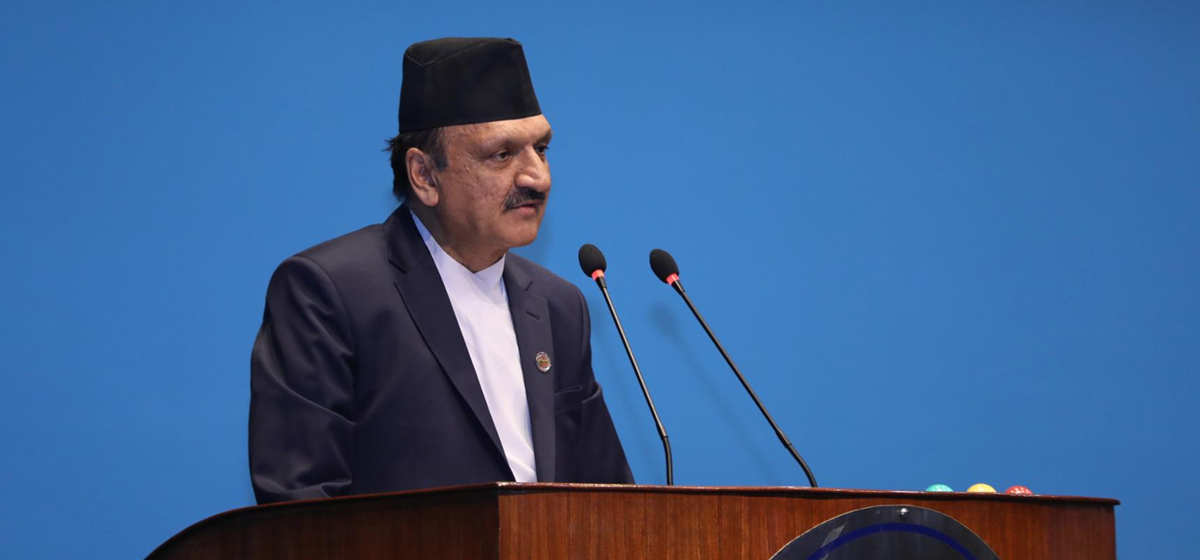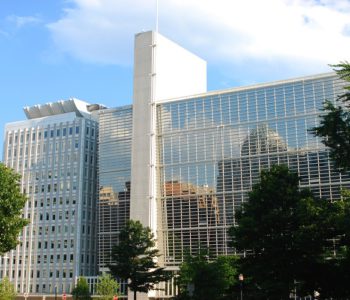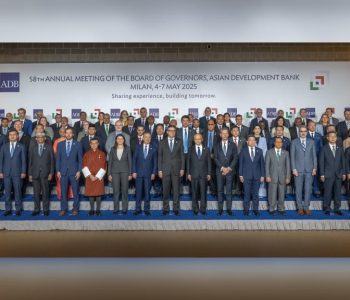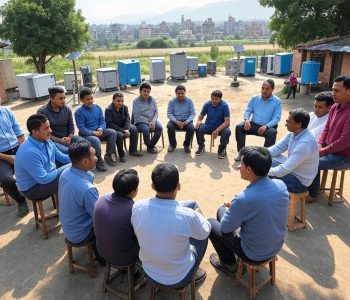Finance Minister insists on role of MDBs, AIIB in reducing huge financing gap

KATHMANDU: Finance Minister Dr Prakash Sharan Mahat has called for the role of Multilateral Development Banks, (MDBs) including AIIB and other international organizations and stakeholders to ensure low-and middle-income countries’ access to finance.
In his address to a session of ongoing Asian Infrastructure Bank’s annual meeting in Sharm EL Sheikh, Egypt on Monday, the Finance Minister said, “The world is now facing triple challenges of stabilizing global economy, accelerating progress towards net-zero emissions, and ensuring for their economic development, poverty reduction, and improving the quality of life of their citizen. That calls for additional financial resources on a massive scale and underscores the role of Multilateral Development Banks, (MDBs) including AIIB in reducing the huge financing gap.”
Underlining the need for close coordination and cooperation among MDBs, as well as with other international organizations and stakeholders to this regard, he said AIIB, with its adherence to the quality standards, transparency rules, and environmental safeguards, could address funding and allocation gaps in the global financial architecture by developing networks with other Multilateral Development Banks and other non-borrower members, and helping crowd-in more private-sector capital.
He pressed the idea that AIIB could support low and middle-income countries to low-emission economic recovery, economic development, and job creation through economy-wide mainstreaming package; green infrastructure development; broaden access to finance, technology and capacity building; and provisioning of social protection and safety nets during climate induced disasters and transition to green economy.
The Finance Minister utilized the forum to urge the international community to accept the fact that the role of concessional financing remains key to countries like Nepal.
“Nepal is strongly in favor of having a designated concessional financing window within AIIB. We believe that it enhances the bank’s effectiveness in promoting equitable and sustainable development across its member countries. It justifies the spirit of multilateralism and rationale of having a diverse group of founding members.
Higher pricing of loan is hindering us to access core investment resources of AIIB and compromising inclusive and resilient economic growth potential in the region,” he said, requesting the fellow governors to embrace this fact and support Nepal’s proposal.
Stating that conventional sources of financing wouldn’t be sufficient for mobilizing additional resources, he said thus, AIIB should embark on exploring innovative financing mechanisms that can help meet the infrastructure financing needs of borrower countries.
“This includes public-private partnerships, green bonds, blended finance, and leveraging private sector investments through an attractive arrangement. Political risk insurance, guarantees, and sound regulatory frameworks are the areas where AIIB can support through its technical assistance. In addition, scaling up climate finance and facilities in an integrated way so as to support core project costs to countries having disproportionate effects of climate change like Nepal is equally important.”













Facebook Comment